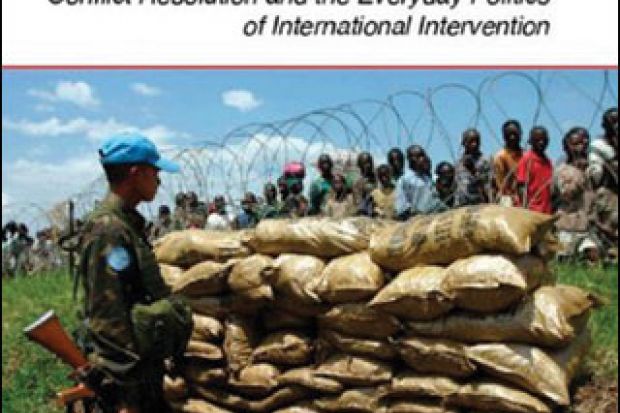From 2008, eastern Congo came to be known as the rape capital of the world. International projects provided vital medical care to victims of sexual violence, but the focus on the suffering caused by widespread sexual abuse proved counterproductive. It diverted attention (and money) away from other forms of violence, and, tragically, it created incentives for armed groups to use rape as a way to get attention. Although these consequences were unintended, according to Séverine Autesserre they point to how, despite good intentions, peace interventions fail to reach their full potential.
The problem lies with the everyday practices and narratives of the expatriates who make up these missions – the inhabitants of “Peaceland”. Interveners’ standard responses to the complex realities of conflict environments can render peacebuilding operations ineffective, inefficient and counterproductive – even when peacebuilders know that they are.
Recruitment practices favour thematic expertise over knowledge of local context and language. Expatriates, not locals, fill peacebuilding organisations’ managerial positions. Foreign peacebuilders are generally based in (provincial) capitals and socialise primarily with other expats; they follow strict security procedures and live in “bunkerized” quarters. Their analyses reflect simple narratives on the causes, consequences and solutions to violence, and their focus is on short-term solutions and quantifiable results.
There are benefits to these routines – professionalisation, ability to secure donor funding, safety – but also a downside. These ways of acting and thinking prevent local authorship and ownership, which are widely seen as key to peacebuilding effectiveness. They encourage one-size-fits-all models over a nuanced understanding of what drives local violence. And they foster local resistance to international programmes, in turn reinforcing the practice of overlooking local input.
It’s a vicious cycle, and the focus on these dynamics – and suggestions for how to overcome them – makes Peaceland a must-read for anyone in the peacebuilding business. It should also make those of us who research and teach courses on conflicts and conflict resolution think about how we do it. Beyond general approaches emphasised in recent decades, the inclusion of area studies and insights from those affected by conflict may be ways forward. Autesserre, no fan of simple narratives, does not advocate abandoning thematic expertise, but she makes the case for a rebalancing.
Herself a long-time inhabitant of Peaceland, Autesserre is uniquely suited to uncover the everyday routines she studies. “In my first days as an intervener,” she reflects, “I was so concerned about fitting in that I did not stop to question what it was that I was fitting in to.” But she goes beyond her own experiences as an insider, drawing on hundreds of interviews and participant observations from a carefully designed ethnographic study. She spent 15 months in the field, primarily in Congo, which she knows well from research undertaken for her first book, The Trouble with the Congo, as well as in Burundi, Cyprus, Israel and the Palestinian Territories, South Sudan and Timor-Leste.
Autesserre speaks with authority in a book that is both a harsh critique and a tribute to the individuals and organisations that dare to think differently. It is from these exceptions that she asks that peacebuilders learn.
Peaceland: Conflict Resolution and the Everyday Politics of International Intervention
By Séverine Autesserre
Cambridge University Press, 360pp, £55.00 and £19.99
ISBN 9781107052109, 7632042 and 9781139950565 (e-book)
Published 17 July 2014
Register to continue
Why register?
- Registration is free and only takes a moment
- Once registered, you can read 3 articles a month
- Sign up for our newsletter
Subscribe
Or subscribe for unlimited access to:
- Unlimited access to news, views, insights & reviews
- Digital editions
- Digital access to THE’s university and college rankings analysis
Already registered or a current subscriber? Login





